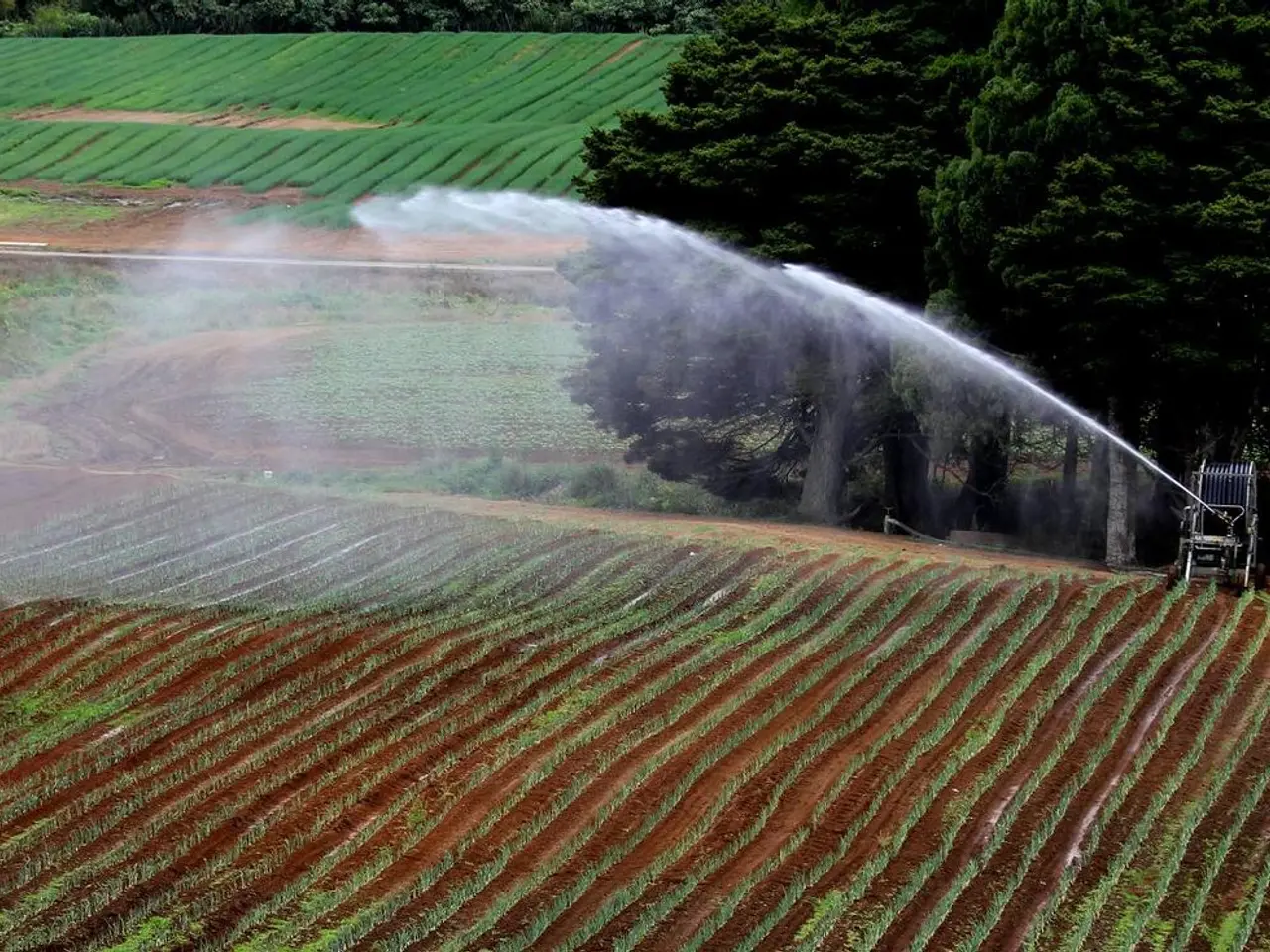Optimized Agricultural Practices: The Future of Crop Production
In the rapidly evolving world of agriculture, precision farming is making waves as a game-changing method for optimizing various farming aspects. Indian farmers are increasingly recognizing the numerous benefits and reasons to adopt this advanced technology, driven by advancements in AI, satellite imaging, and other cutting-edge technologies.
Precision farming offers a host of key advantages, starting with optimized resource use. By employing AI-enabled smart irrigation, farmers can save up to 30-50% water and cut water bills by up to 40%, making farming more resource-efficient and reducing input costs. This careful management helps conserve resources and promotes sustainability.
Another significant benefit is higher yields. By utilising precise data on soil conditions, moisture levels, and crop health, farmers can make better planting and management decisions, potentially increasing crop yields by 20-30%. This improvement is primarily due to improved sowing times and stress management.
Precision farming also supports soil-friendly and sustainable practices. By implementing targeted interventions, farmers can minimise overuse of chemicals, improving soil health and making farming more environmentally sustainable.
Real-time data-driven decisions are another hallmark of precision farming. Tools such as satellite-derived maps, sensors, and AI models provide farmers with actionable insights quickly, enabling timely responses to crop stress and pests. This improves efficiency and reduces losses.
Economic advantages are also a significant draw for Indian farmers. Savings on water, pesticide, and fertiliser use translate into reduced operational costs and increased profitability.
Precision farming also enhances resilience, particularly in the face of climate variability. AI and precision farming technologies help farmers adapt to weather risks and pest outbreaks, improving farm resilience.
Moreover, precision farming offers improved access to knowledge and markets. AI-driven extension services and platforms offer personalised advice and supply chain transparency, helping farmers make better decisions and connect directly with buyers, reducing intermediaries.
In the Indian context, precision farming presents a promising solution to several challenges. Agriculture employs over 70% of India’s rural population, yet many farms remain small and resource-constrained, making efficiency gains critical. Growing challenges such as climate change, water scarcity, and increasing food demand necessitate smarter, more sustainable farming methods.
Government initiatives and agri-tech startups are fostering an ecosystem that supports precision agriculture through subsidies, training, and affordable AI-based platforms tailored to smallholders. The mindset shift enabled by precision farming encourages farmers to observe more closely, reduce waste, and act faster—critical behavioural changes for boosting productivity and sustainability.
In summary, Indian farmers adopting precision farming stand to benefit from improved resource efficiency, higher and more stable yields, reduced costs, environmental sustainability, and better market linkages. These advantages are increasingly essential given socioeconomic and environmental challenges in India’s agriculture sector.
The technologies supporting precision farming include satellite imagery, drones, precision planting equipment, soil sensors, and precision irrigation systems. Drones offer aerial views of fields, allowing farmers to inspect crops and identify problems more efficiently. Soil sensors measure soil moisture, temperature, and nutrient levels, helping farmers make informed decisions about irrigation and fertilisation.
Precision planting equipment ensures seeds are planted at the optimal depth and spacing, maximising germination rates and crop yield. Precision farming also leads to optimised land use, maximising productivity while preserving resources.
Precision farming is transforming the way we cultivate crops and manage livestock, and this blog article has outlined its advantages and why Indian farmers should consider adopting this revolutionary strategy. The future of agriculture lies in precision, and India stands to reap significant benefits from embracing this paradigm shift.
Data-and-cloud-computing technologies play a crucial role in precision farming by enabling real-time decision-making, while technology advancements such as AI, satellite imaging, drones, and precision planting equipment dramatically enhance resource efficiency, yields, and sustainability for Indian farmers.
Drones, soil sensors, and precision irrigation systems, all part of the data-and-cloud-computing landscape, bolster the effectiveness of precision farming by offering actionable insights and optimizing land use for farmers.




